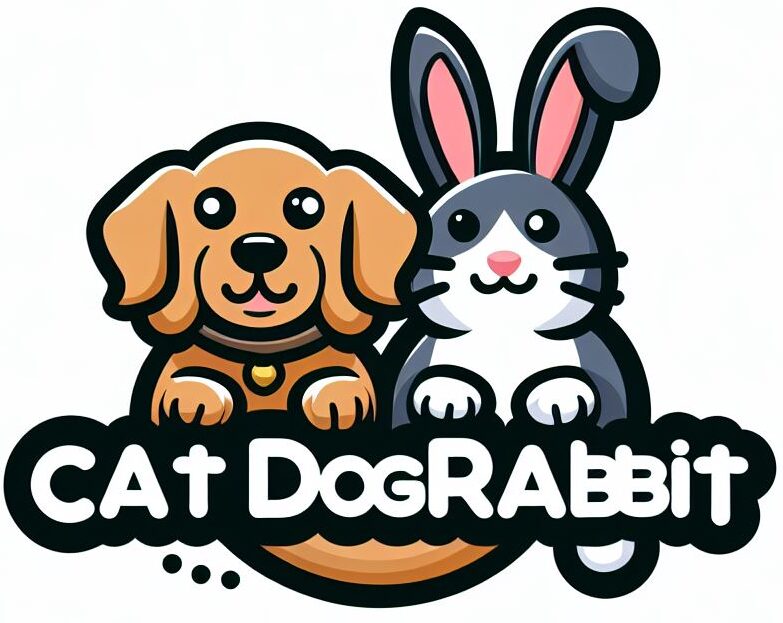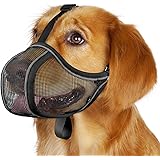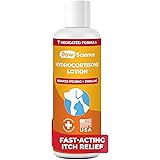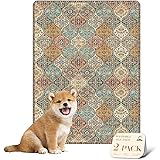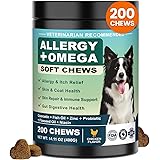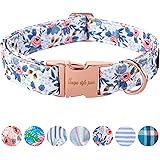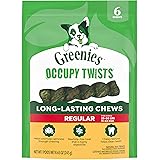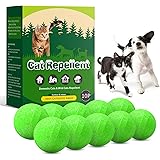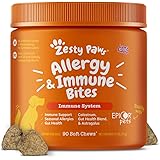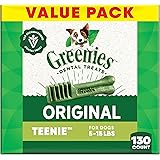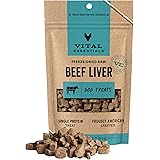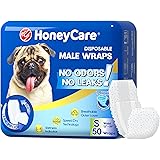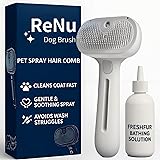
Mayerzon Dog Muzzle to Prevent Biting Scavenging Chewing, Soft Mesh Puppy Muzzles for Medium Large Sized Dogs, Breathable, Reflective, Adjustable Mouth Guard for Grooming Walking Training (M, Black)
$11.99 (as of 02/08/2026 14:07 GMT +00:00 - More infoProduct prices and availability are accurate as of the date/time indicated and are subject to change. Any price and availability information displayed on [relevant Amazon Site(s), as applicable] at the time of purchase will apply to the purchase of this product.)gogobunny 3X Stronger Waterproof Pet Blanket, Scratch Proof Furniture Protector for Dogs Cats, Reversible Cover 30x70 Inch, Dark Grey/Light Grey
$7.98 (as of 02/08/2026 14:12 GMT +00:00 - More infoProduct prices and availability are accurate as of the date/time indicated and are subject to change. Any price and availability information displayed on [relevant Amazon Site(s), as applicable] at the time of purchase will apply to the purchase of this product.)Pedigree Dentastix Large Dog Treats, Original, Beef & Fresh, 2.73 lb. Variety Pack (51 Treats Total)
$16.79 (as of 02/08/2026 14:07 GMT +00:00 - More infoProduct prices and availability are accurate as of the date/time indicated and are subject to change. Any price and availability information displayed on [relevant Amazon Site(s), as applicable] at the time of purchase will apply to the purchase of this product.)Paw Science Anti-Itch Hydrocortisone Moisturizing Lotion for Dogs & Cats – Hot Spot Treatment, Dog Itching Skin Relief, Itchy Hotspots Cream, Medicated Ointment for Irritation & Rash
$9.99 (as of 02/08/2026 14:07 GMT +00:00 - More infoProduct prices and availability are accurate as of the date/time indicated and are subject to change. Any price and availability information displayed on [relevant Amazon Site(s), as applicable] at the time of purchase will apply to the purchase of this product.)Milk-Bone Mini's Flavor Snacks Dog Treats, 36 Ounce
$11.47 (as of 02/08/2026 14:07 GMT +00:00 - More infoProduct prices and availability are accurate as of the date/time indicated and are subject to change. Any price and availability information displayed on [relevant Amazon Site(s), as applicable] at the time of purchase will apply to the purchase of this product.)nunubaby Washable Pee Pads for Dogs, Stylish, Non-Slip and Leak-Proof Pee Mat. ultra-absorbent Reusable potty pad for Crates and Floors.(Cream/Multi, 18" x24" )
$8.42 (as of 02/08/2026 14:12 GMT +00:00 - More infoProduct prices and availability are accurate as of the date/time indicated and are subject to change. Any price and availability information displayed on [relevant Amazon Site(s), as applicable] at the time of purchase will apply to the purchase of this product.)DUMOS Dog Stairs Ramp for Small Dogs and Cats, 5-Step Curved Pet Dog Steps with High-Density Foam for Puppy and Older Cats, Indoor Non-Slip Pet Ladder Ramp Stairs for Couch, High Beds, Sofa, Car, Grey
$49.99 (as of 02/08/2026 14:07 GMT +00:00 - More infoProduct prices and availability are accurate as of the date/time indicated and are subject to change. Any price and availability information displayed on [relevant Amazon Site(s), as applicable] at the time of purchase will apply to the purchase of this product.)Dog Allergy Chews Omega 3 is Human Multivitamin Itch Relief Medicine for Dogs Itching Skin Relief and Aller Immune Pet Allergy Dog Anti Itch Chews Coat Licking Supplements Pills Meds Medicine for Dogs
$25.99 (as of 02/08/2026 14:07 GMT +00:00 - More infoProduct prices and availability are accurate as of the date/time indicated and are subject to change. Any price and availability information displayed on [relevant Amazon Site(s), as applicable] at the time of purchase will apply to the purchase of this product.)Unique Style Paws Dog Collar With Metal Buckle - Red Rose Flower Gift for Small, Medium, Large Boys Girls Dogs - Durable and Cute
$9.99 (as of 02/08/2026 14:12 GMT +00:00 - More infoProduct prices and availability are accurate as of the date/time indicated and are subject to change. Any price and availability information displayed on [relevant Amazon Site(s), as applicable] at the time of purchase will apply to the purchase of this product.)Understanding your dog’s nutritional needs is crucial for their overall health and well-being. Just like humans, dogs require a balanced diet that provides them with the necessary nutrients to thrive. Proper nutrition plays a vital role in maintaining a healthy weight, promoting good digestion, supporting a strong immune system, and preventing various health issues. By understanding your dog’s nutritional needs, you can make informed decisions about their diet and ensure they are getting the right nutrients in the right amounts.
Key Takeaways
- Understanding your dog’s nutritional needs is crucial for their overall health and well-being.
- When analyzing dog food labels, look for high-quality protein sources and avoid fillers and by-products.
- Protein is essential for your dog’s diet and should make up a significant portion of their food.
- Grain-free and grain-inclusive dog food both have their benefits, but it ultimately depends on your dog’s individual needs.
- Wet and dry dog food both have pros and cons, so consider your dog’s preferences and health when choosing.
- Homemade dog food can be a good option, but it’s important to ensure it meets all of your dog’s nutritional needs.
- When transitioning your dog to a new food, do it gradually to avoid digestive upset.
- If your dog has allergies or dietary restrictions, choose a food that meets their specific needs.
- Supplements can be beneficial for your dog’s health, but consult with your vet before adding them to their diet.
- You can find high-quality dog food that fits your budget by comparing prices and ingredients and looking for sales and discounts.
Understanding Your Dog’s Nutritional Needs
Dogs require a combination of macronutrients (protein, fat, and carbohydrates) and micronutrients (vitamins and minerals) in their diet. Protein is essential for dogs as it helps build and repair tissues, supports muscle development, and provides energy. Fat is another important nutrient that provides energy, helps absorb fat-soluble vitamins, and contributes to healthy skin and coat. Carbohydrates provide energy and fiber for digestion.
The specific nutritional needs of your dog can vary depending on factors such as age, breed, and activity level. Puppies require more protein and calories than adult dogs to support their growth and development. Large breed dogs may have different nutritional needs compared to small breed dogs due to their size and potential joint issues. Active dogs may require more calories to fuel their energy levels, while sedentary dogs may need fewer calories to maintain a healthy weight.
Analyzing Dog Food Labels: What to Look For
When choosing a dog food, it’s important to analyze the label to ensure it meets your dog’s nutritional needs. The label should provide information about the ingredients used in the food, guaranteed analysis (which includes the minimum percentages of protein and fat), feeding guidelines, and any additional claims or certifications.
Look for high-quality protein sources listed as the first ingredient on the label. Avoid foods that use fillers or by-products as primary ingredients. It’s also important to consider the overall balance of the nutrients in the food. The guaranteed analysis should provide information about the minimum percentages of protein and fat, which can help you determine if the food meets your dog’s needs.
The Importance of Protein in Your Dog’s Diet
| Importance of Protein in Your Dog’s Diet |
|---|
| Protein is essential for building and repairing tissues in your dog’s body. |
| Protein is necessary for the production of enzymes, hormones, and other important molecules. |
| Protein provides energy for your dog’s daily activities. |
| Protein helps to maintain a healthy immune system. |
| Dogs require a higher percentage of protein in their diet compared to humans. |
| Protein sources in your dog’s diet should be high-quality and easily digestible. |
| Consult with your veterinarian to determine the appropriate amount of protein for your dog’s specific needs. |
Protein is a crucial nutrient for dogs as it plays a vital role in their overall health. It is essential for building and repairing tissues, supporting muscle development, and providing energy. Dogs are omnivores, meaning they can obtain protein from both animal and plant sources. However, animal-based proteins are considered more biologically available and easier for dogs to digest.
The appropriate amount of protein for your dog depends on various factors such as age, breed, and activity level. Puppies require more protein than adult dogs to support their growth and development. Active dogs may also require more protein to support their energy needs. It’s important to consult with your veterinarian to determine the appropriate amount of protein for your dog’s specific needs.
Grain-Free vs. Grain-Inclusive Dog Food: Which is Better?
Grain-free dog food has gained popularity in recent years, with many pet owners opting for this type of diet for their dogs. Grain-free dog food does not contain grains such as wheat, corn, or soy. Instead, it often uses alternative carbohydrate sources such as potatoes or legumes.
While grain-free dog food can be a suitable option for some dogs, it’s important to note that grains themselves are not inherently bad for dogs. In fact, grains can provide valuable nutrients such as fiber and essential vitamins and minerals. Some dogs may have specific dietary restrictions or allergies that require a grain-free diet, but for most dogs, a grain-inclusive diet can be perfectly healthy.
Wet vs. Dry Dog Food: Pros and Cons

When it comes to choosing between wet and dry dog food, there are pros and cons to consider for each option. Wet dog food typically contains higher moisture content, which can be beneficial for dogs who don’t drink enough water or have specific health issues such as urinary tract problems. It can also be more palatable for picky eaters or dogs with dental issues.
On the other hand, dry dog food is more convenient and cost-effective. It has a longer shelf life and is easier to store and transport. Dry dog food also helps promote dental health by reducing plaque and tartar buildup. However, it’s important to note that not all dry dog foods are created equal, and some may contain lower-quality ingredients or excessive fillers.
Homemade Dog Food: Is it a Good Option?
Homemade dog food can be a good option for some pet owners who want more control over their dog’s diet. It allows you to choose the ingredients and ensure they are of high quality. However, it’s important to note that homemade dog food requires careful planning and preparation to ensure it is nutritionally balanced.
When preparing homemade dog food, it’s crucial to include a variety of protein sources, such as lean meats, fish, and eggs. You should also include carbohydrates from sources such as sweet potatoes or brown rice, as well as fruits and vegetables for essential vitamins and minerals. It’s recommended to consult with a veterinarian or veterinary nutritionist to ensure your homemade dog food meets all of your dog’s nutritional needs.
How to Transition Your Dog to a New Food
When transitioning your dog to a new food, it’s important to do so gradually to avoid digestive upset. Sudden changes in diet can lead to diarrhea or vomiting in dogs. To make the transition as smooth as possible, start by mixing a small amount of the new food with the old food and gradually increase the proportion of the new food over several days or weeks.
It’s also important to monitor your dog during the transition period for any signs of digestive upset. If your dog experiences any issues, you may need to slow down the transition or consult with your veterinarian for guidance. Additionally, it’s important to note that some dogs may have specific dietary restrictions or allergies that require a more specialized transition plan.
Allergies and Dietary Restrictions: Choosing the Right Food for Your Dog
If you suspect that your dog has a food allergy or dietary restriction, it’s important to consult with your veterinarian for proper diagnosis and guidance. Common signs of food allergies in dogs include itching, gastrointestinal upset, and ear infections. Your veterinarian may recommend an elimination diet or allergy testing to identify the specific allergens.
Once you have identified the allergens, you can choose a dog food that avoids those ingredients. There are many hypoallergenic dog foods available that are specifically formulated for dogs with food allergies or sensitivities. These foods often use alternative protein and carbohydrate sources that are less likely to cause an allergic reaction.
The Role of Supplements in Your Dog’s Diet
Supplements can play a beneficial role in your dog’s diet, but it’s important to use them appropriately and under the guidance of a veterinarian. Some common supplements for dogs include omega-3 fatty acids for healthy skin and coat, joint supplements for dogs with arthritis or joint issues, and probiotics for digestive health.
Before adding any supplements to your dog’s diet, it’s important to consult with your veterinarian to determine if they are necessary and appropriate for your dog’s specific needs. Your veterinarian can recommend the right type and dosage of supplements based on your dog’s age, breed, and health condition.
Choosing the Best Dog Food for Your Budget
Choosing a high-quality dog food doesn’t have to break the bank. While premium dog foods may come with a higher price tag, there are still affordable options available that provide adequate nutrition for your dog. When choosing a dog food on a budget, it’s important to prioritize the quality of the ingredients rather than focusing solely on the price.
Look for dog foods that use high-quality protein sources as the first ingredient and avoid foods that contain excessive fillers or by-products. It’s also important to consider the overall balance of the nutrients in the food and ensure it meets your dog’s specific needs. Investing in your dog’s nutrition is an investment in their long-term health and well-being.
Understanding your dog’s nutritional needs is essential for their overall health and well-being. By providing them with a balanced diet that meets their specific needs, you can help prevent various health issues and promote their overall vitality. Analyzing dog food labels, understanding the importance of protein, considering different types of dog food, and addressing allergies or dietary restrictions are all important factors to consider when choosing the best food for your dog. Remember to consult with your veterinarian for personalized guidance and recommendations to ensure your dog’s nutritional needs are met. Prioritizing your dog’s nutrition is a key aspect of being a responsible and caring pet owner.
FAQs
What is dog food?
Dog food is a specially formulated food that is designed to meet the nutritional needs of dogs. It is available in various forms such as dry kibble, wet canned food, and semi-moist food.
What are the ingredients in dog food?
The ingredients in dog food vary depending on the brand and type of food. However, most dog foods contain a combination of protein sources, carbohydrates, fats, vitamins, and minerals. Common protein sources include chicken, beef, lamb, and fish.
How do I choose the right dog food for my pet?
Choosing the right dog food for your pet depends on several factors such as age, breed, activity level, and health condition. Consult with your veterinarian to determine the best type of food for your dog.
Can I feed my dog human food instead of dog food?
While some human foods are safe for dogs to eat, it is not recommended to feed your dog human food as their primary diet. Human food may not provide the necessary nutrients that dogs need and can lead to health problems.
How much should I feed my dog?
The amount of food to feed your dog depends on their age, weight, and activity level. Follow the feeding guidelines on the dog food packaging or consult with your veterinarian for specific recommendations.
What are some common dog food allergies?
Common dog food allergies include allergies to beef, chicken, dairy, wheat, and soy. Symptoms of food allergies in dogs include itching, skin irritation, and digestive problems. Consult with your veterinarian if you suspect your dog has a food allergy.
